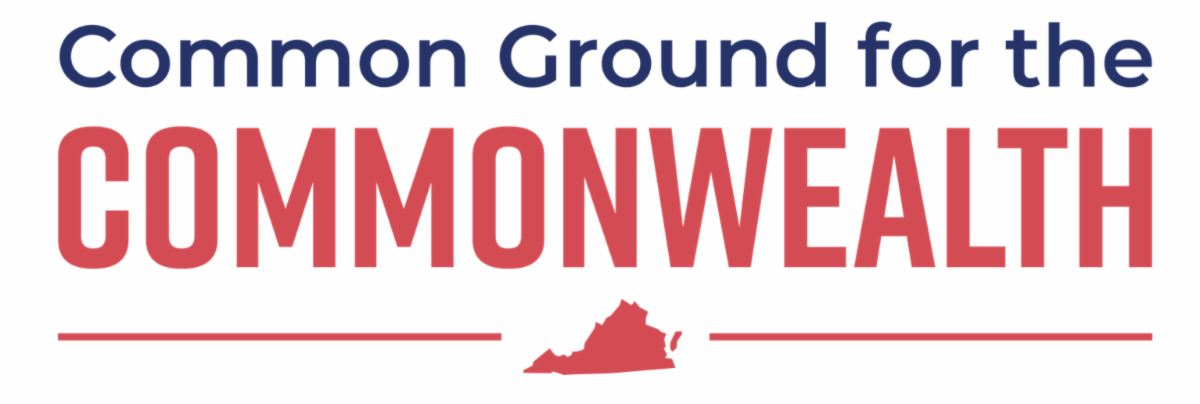|

Governor Glenn Youngkin on Monday released a package of 242 budget amendments to find common ground with the General Assembly on a new, two-year budget. The proposed package eliminates all tax increases, includes record funding for K-12 education, $3.2 billion in new spending on health and human resources. We can find Common Ground for the Commonwealth and deliver a structurally balanced, clean budget, on time.
Governor Youngkin’s Proposed K-12 and Higher Education Amendments
The Common Ground Budget continues to build on the bipartisan commitment to funding a high- quality education, setting a new two-year record for K-12 education funding, and increasing higher education funding by $1 billion.
- A record $21.3 billion in K-12 funding, an increase of $1.2 billion over the previous biennium.
- Includes a 3% teacher pay raise in each year, on top of 12% teacher pay raises adopted in the last two budget cycles. These 18% teacher pay raises is projected to raise average teacher pay in Virginia above the national average by nearly $3,500 a year.
- Invests over $800 million for early childhood care and education to support 68,000 early learners previously supported by federal dollars and increase the number of early childhood slots.
- Restores $85 million of lab school funding to support the 21 lab schools being built across 60+ school divisions, which would serve an estimated 5,000 students when fully-implemented.
- Increases funding for higher education by $1 billion, including over $150 million for affordable access to cap tuition increases at 3%.
Reflecting the spirit of compromise, the $21.3Bn biennial investment in K-12 education responds to priorities introduced by the General Assembly:
- $196 million in Additional Funding for At-Risk Students
- $25 million in Additional Funding for English Language Learners
- $15 million in Additional Funding in Supplemental Grant Programming
- $243 million in Additional Payments to local school divisions by reinstating the grocery tax hold harmless payment
We can still make significant investments in collective priorities without raising taxes with savings resulting from final legislative actions, revisions to forecasts and estimated needs. The Common Ground Budget delivers a $1.2 billion increase in funding, and reflects $600 million in General Fund movement from the conference report, but this doesn’t tell the full story of K-12 funding, only $302 million of change is related to true policy adjustments:
- $150 million in general fund education savings are realized by using unspent Literary Fund balances to support teacher retirement.
- Elimination of tax increases reduces state sales tax distributions by $169 million.
- The remaining $302 million in policy adjustments reflect the elimination of ratio-driven funding variables and tailor limited resources to the highest-demand programming in early childhood care and education offerings.
- At-Risk Add On: Amendments avoid the consolidation of two education funding streams, hold use of existing funding variables, and increase the maximum add-on percentage from 36.0 to 40.5 percent, providing $196 million in additional funding, compared to $317 million proposed in conference. With calculated adjustments to the conference proposal, all divisions gain under this option relative to status-quo.
- English Language Learners (ELL): Without access to student-level proficiency data, amendments increase ELL staffing standards to 1-per-45 students from 1-per-50 instead of introducing a new proficiency-based standard. This provides $25 million of additional funding relative to the conference report’s $47 million.
- Early Childhood Care & Education: Amendments retain conference adjustments to copayment schedules, provide 500 additional slots, and call for resource fungibility across programming to support parent choice and family demand. This provides $805 million of general fund support, compared to the $899 million introduced in conference.
Adjusting increases to formula driven funding variables allows the on-going SOQ funding- formula overhaul to better inform education investments in these critical areas, ensuring resources are prioritized to students and schools with greatest needs. Adopting patchwork changes may blunt the momentum for reform, and we should reserve formula-driven changes for when we can do so comprehensively.
The Common Ground Budget also recognizes additional K-12 and Higher Education Investments:
- $38 million additional funds to overhaul K-12 state assessments and improve action-oriented analytics to ensure families and teachers have a clear picture of all students’ performance
- Restores full funding to the Department’s Office of School Quality, ensuring struggling schools have the resources needed to meet the expectations of a reformed and rigorous accreditation system.
- Invests over $335 million for school construction loans and competitive grants, building on the $3 billion dollar investment in 2022 that provided targeted assistance, formula-based school construction and modernization grants, and low-interest loans to all school divisions.
- In higher education, includes $75 million to support PELL grant recipients, $33 million for financial aid, and $24 million to support veterans and their families.
|




